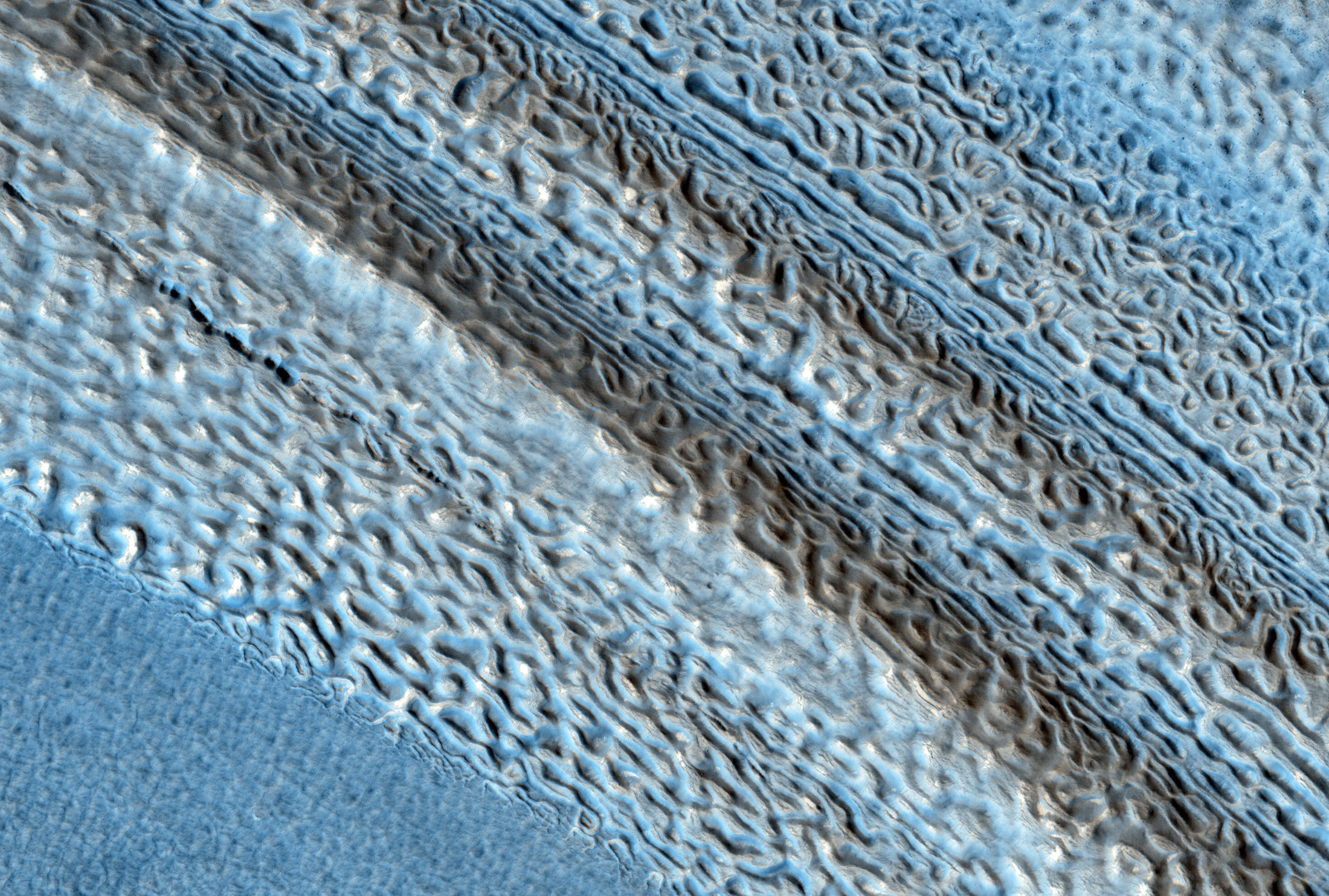

HiRISE image of lobate landforms called "brain terrain" that wrap around a small hill on Mars
It doesn’t take much thought to understand why this landscape on Mars is called “brain terrain” — the swirling lobes of ice, part of a large glacial deposit in Mars’ northern hemisphere, uncannily resemble the texture of a brain — or at the very least a brain coral!
What causes this strange landscape? Find out below:
It’s suggested that brain terrain is the result of the thermal stress and contraction, followed by sublimation, of these large ice deposits, laid down during a mid-latitude glaciation period ten to 100 million years ago. (Read more in this 2009 paper by Brown University’s Joseph Levy et al.)
This image was obtained by the HiRISE camera aboard the Mars Reconnaissance orbiter on August 23, 2013. See the original RGB color scan here.
Some exoplanets have characteristics totally alien to our Solar System. Hot Jupiters are one such…
Stars form in Giant Molecular Clouds (GMCs), vast clouds of mostly hydrogen that can span…
Let’s dive into one of those cosmic curiosities that's bound to blow your mind: how…
The majority of the universe remains unmapped, but we have a potential window into it…
NASA engineers are pressing ahead with preparations for the Artemis II mission unless someone tells…
It’s not uncommon for space missions to be tested here on planet Earth. With the…